Africa Energy: Towards
a sustainable future
Meet the specialists who are driving Standard Bank Corporate and Investment banking's commitment to sustainable finance with a focus on renewable energy projects across Africa.


Meet the specialists who are driving Standard Bank Corporate and Investment banking's commitment to sustainable finance with a focus on renewable energy projects across Africa.

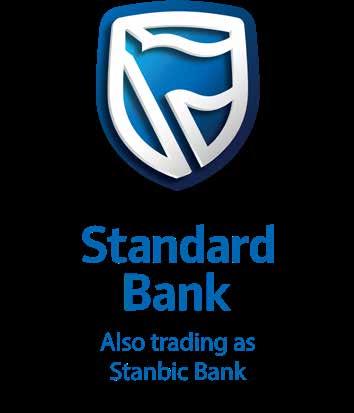
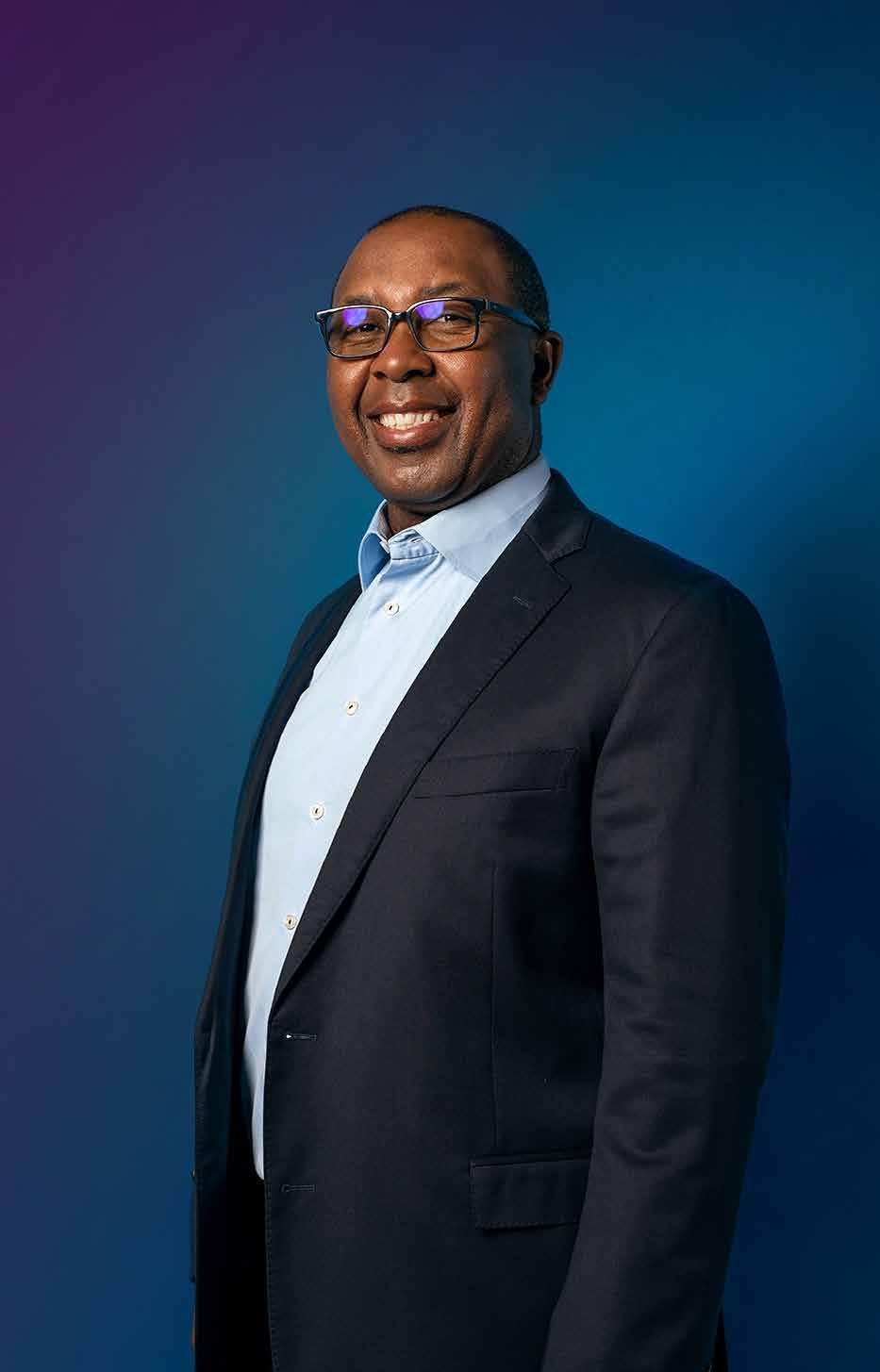
The recent severe floods in Nigeria, as well as record high temperatures in various parts of the world have placed the spotlight on the growing threat posed by climate change and the urgent need to ramp up investments in green energy solutions. The world’s attention has also been fixated on the Ukrainian invasion – a human crisis that has thrown into stark reality Europe’s dependence on Russian hydrocarbons and the pipeline infrastructure that delivers oil and gas to the region’s consumers.
Energy prices have skyrocketed since early 2022, highlighting the strategic and moral dilemma facing Europe’s most industrialised economies. Germany, due to its own limited natural resources, is heavily reliant on Russia for more than half of its gas, almost half of its coal, and about a third of its oil, according to Bloomberg. While already one of the world’s most advanced economies, in terms of greener energy usage, Germany has found that its renewables are nowhere near enough to sustain its population’s demands for electricity and fuel, while also powering its economy. Like most of Europe, Germany is balancing its need for energy security and economic growth, even as it embarks on a decades-long transition to greener fuels and greater energy independence.
The need for Africa to follow a just transition to greener energy and advance the development of its people is imperative. The developed world has a significant head-start. Compare Germany and Uganda. According to the World Bank, GDP per capita in Germany was $46,208 in 2020, while for Uganda it was a paltry $822. In the same year, German life expectancy at birth was 81.4, while in Uganda, it was 63.7. Likewise, in 2018, Germany emitted 8.22 metric tons (tonnes) of CO2 per person, while Uganda’s carbon footprint was just 0.143 tonnes per person. There are many statistics that reference this, and Uganda, like most other African countries, still has a long path ahead to catch up with the developed nations of the world.
It is against these disparities that Africa needs a multi-stakeholder and multinational approach to curb the climate crisis. The latest United Nations Intergovernmental Panel on Climate Change (PCC) report warns that limiting global warming to 1.5°C is looking ever more unlikely without urgent global action on drastic reductions in greenhouse gas (GHG) emissions.
Even though Africa is a minor contributor to global GHG emissions (3.8%), the climate risks for our continent are real and ominous. Not only are African countries most vulnerable to the effects of climate change, despite contributing significantly less to global carbon emissions, they face greater dilemmas than their European counterparts in meeting the legitimate needs of their people today, while transitioning to a greener, more just society. Historically, renewables were criticised as being too expensive. However, we have seen a significant decline in their cost, due in large part, to advancements in technology, making renewables more efficient and affordable. Technological advances have increased the possibility of achieving a transition away from nonrenewable energy sources, with Africa being rich in untapped renewables – solar, wind, hydropower and geothermal.
In the medium to long-term, there is an immense opportunity for Africa to produce and export green energy solutions to sunshine-poor northern climates. There are innovative opportunities with vast potential that aim to re-tool economies to run on hydrogen produced from African sunshine and wind.
Earlier this year, Anglo American unveiled the world’s
biggest green hydrogen-powered truck at a platinum mine in Limpopo, South Africa. The mining giant intends to replace its existing diesel-fuelled fleet, which uses an estimated 40 million litres of carbon-based fuel a year, with green hydrogen-powered trucks. This early-stage development shows the innovative work underway on our continent, and creates room for us to be world leaders in the green hydrogen economy. President Ramaphosa called the initiative, “a gigantic leap for South Africa’s hydrogen future economy”, representing “the genesis of an entire ecosystem powered by hydrogen.”
The International Labour Organisation and United Nations Framework Convention on Climate Change defines a just transition as, “greening the economy in a way that is as fair and inclusive as possible to everyone concerned, creating decent work opportunities and leaving no one behind.”
While Africa must join the global drive towards limiting GHG emissions, this action must be considered within the context of Africa’s just transition towards a lowcarbon economy, and in a manner that recognises and addresses the deep energy deficit across African economies. The transition away from non-renewable energy will necessarily be a gradual and measured process, given widespread energy poverty across sub-Saharan Africa, where less than 50 percent of the population have access to electricity.
As the World Bank has argued, Africa’s recovery from the COVID-19 pandemic, and its medium-term development, both require a degree of openness to further investment in ‘brown’ activities. Many argue that a refusal to accept this would amount to denying Africa’s right to sustainable development. A total or immediate ban on further transitional projects in Africa to help reduce environmental pressure in much richer regions is simply unjust.
Energy, in general, underpins economic growth in emerging markets, specifically in Africa, where affordable and reliable energy access is fundamental to development. Therefore, non-renewable energy will likely remain key to ensuring energy security in many African regions requiring broad access to electricity, as well as transportation.
Africa’s growing urban populations will require a reliable and sustainable energy supply to power industrial production, electrify more households,
and expand the use of transport to drive socioeconomic development. Certain countries – Nigeria, Angola, Ghana and Mozambique – produce oil and gas for international markets, thus providing foreign currency and tax revenues to develop their respective economies. It is important to objectively acknowledge the pressing need to balance all these realities as part of ensuring a just energy transition.
Having said that, Standard Bank Group’s long-term goal is clear. We will achieve a portfolio mix that is net zero by 2050. That will entail reducing our financed emissions and simultaneously scaling up our financing of renewables, reforestation, climate-smart agriculture, decarbonisation and transition technologies, and supporting the development of credible carbon offset programmes. We are already a major funder of renewable energy projects in Africa. Since 2012, 86 percent of our new energy lending has been to renewable energy, and we have not financed any new coal-fired power stations since 2009.
Responsible investment means following globally accepted environmental, social and governance (ESG) best practices like those embodied in the Equator Principles (EP) and the International Finance Corporations (IFC's) best practice standards, both of which underpin Standard Bank’s investment portfolio. Here, responsible investors can not only support development, but can work with carefully selected clients to ensure that carbon-based energy projects are responsibly developed with the lowest possible carbon footprint. This is how Standard Bank intends to play our role in Africa.
We will finance initiatives that drive economic growth and human development across Africa. Much of this will be investments in renewable energy infrastructure and transitioning to a new sustainable economy, even as we unlock opportunities from Africa’s existing natural endowment. Every major investment must be done according to the highest ethical and governance standards.
Ultimately, just as Europe doesn’t “un-develop” itself by switching off gas, Africa cannot keep itself under-developed by forgoing all carbon-based fuel investment opportunities at the same pace as the developed global north. This would be at great social cost for the continent. Both need to transition to something better – and Standard Bank will support Africa’s just energy transition.
How would you say the world of Investment Banking has changed since you began your career, given that integrating environmental, social and governance (ESG) considerations into transactions is growing in importance?
Since I started my career in Investment Banking, bankers have increasingly become more aware of the ‘transmission’ nature of their jobs – the capital they arrange and the advice they provide has an impact far beyond the immediate fulfilment of a transaction. The current focus on ESG is the next phase of that development and will increasingly determine stakeholder perceptions, investor interest and business outcomes.
To what extent are bankers taking ESG factors into account when considering potential deals?
Bankers are increasingly approaching transactions by taking ESG factors into account – from both positive and negative perspectives. From a positive perspective, they are looking at the benefits a particular situation can unlock for capital structure efficiency. From a downside perspective they are looking at what ESG risks are present in terms of stranded assets and the impact this may have on portfolio policy and obligations.
How do you believe the shift away from fossil fuels will shape mergers and acquisitions (M&A) activity over the coming years?
We are seeing increased M&A activity and the raising of capital in multiple areas and this will happen in phases – the immediate focus will be in renewable and decentralised energy as well as gas as a transition fuel. An example of this would be
Seriti’s acquisition of Windlab’s South African and East African businesses to create Seriti Green.
Beyond this initial phase, we think there will be opportunity in green hydrogen, the mining of critical minerals and the revolution in transport.
ESG and responsible investment considerations are profoundly reshaping business models, how does Standard Bank use its Sustainable Bond Framework to help clients to integrate ESG into their financing?
At Standard Bank, we support our clients by using our own capital to assist clients with arranging financing that will further a company’s ESG objectives. We also arrange primary capital market issuances that connect clients and investors to achieve the same objectives.
We have witnessed a rise in ESG dealmaking, with Standard Bank closing some key deals this year, do you predict this trajectory to continue over the next 5 years?
Yes, and in my view, this is only the start of a sustained transition. We might see certain starts and the build-up of hype followed by periods of cooling, but the longer-term trajectory is undeniable. ESG will eventually become embedded in the way arrangers, issuers and lenders think about structuring all transactions –it will not have a separate ‘category’ so to speak.
How does Standard Bank Investment Banking plan to boost its sustainability profile – what are some of your short-medium- and long-term targets?

Standard Bank Group’s purpose is to drive Africa’s growth and we are committed to do so in an
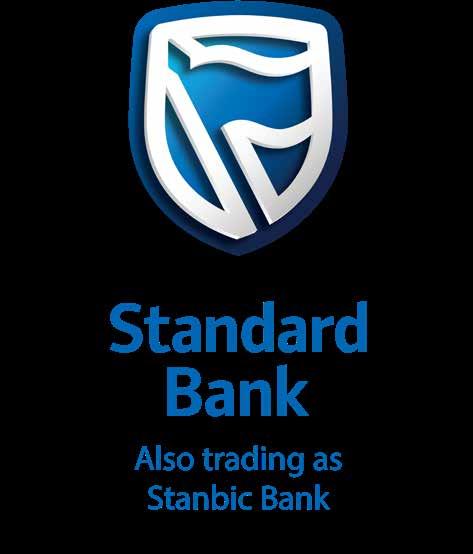
inclusive and sustainable manner. We plan to mobilise a cumulative amount of between R250 billion and R300 billion for sustainable finance by the end of 2026. This target includes an additional R50 billion of financing for renewable energy and underwriting of a further R15 billion of renewable energy by the end of 2024.
Given the continents massive funding needs, what role will sustainable finance play in bolstering capital for high-impact projects and how much appetite is there for green financing in Africa?
In Africa priority should be given to energy security. Due to energy poverty in Africa where more than 40% of the population don’t have reliable access to electricity, we have the unique opportunity to bypass the burden of legacy infrastructure more so than the developed world. However, this will take time and until then, Africa needs to do all it can to modernise its economies. Green financing will play a key role in transitioning legacy infrastructure and also establishing new power generation from sustainable sources.
In closing, ESG, Sustainable Finance and Green Investments have become the biggest buzz words in the last few years. What used to be a niche topic has now taken centre stage – so this begs the question- what’s next?
What comes next is the implementation – carbon emissions remain a serious global threat for which Africa is not the leading contributor. The financing commitments from the developed world
is a move in the right direction – now we all need to get involved on both sides to ensure the implementation of a just energy transition.
What does your current role entail, and tell us about your journey to this position?
I am Head of Investment Banking and have been at Standard Bank for 16 years. I also led the Debt Solutions business which is responsible for all arranging and underwriting of term lending. I started my banking career at RBS, London where I was part of the Leverage Finance team supporting Private Equity led financing. I also spent seven years with Deloitte culminating in the Private Equity Transaction Services team in London.
What is the biggest / most complex transaction you have worked on so far in your career?

I have been privileged to work on many big transactions in my career including large leverage and acquisition financing activities, and I have always enjoyed assisting clients to fulfil on their strategic objectives.
What words of advice do you have to the next generation of bankers?
My advice to the next generation of bankers is not to underestimate the importance of the role of bankers to the economy and society – don’t approach matters with a short-term outlook. Understand the role finance can play in unlocking sustained growth for the benefit of all, especially in a continent such as Africa.
Standard Bank Group’s purpose is to drive Africa’s growth and we are committed to do so in an inclusive and sustainable manner

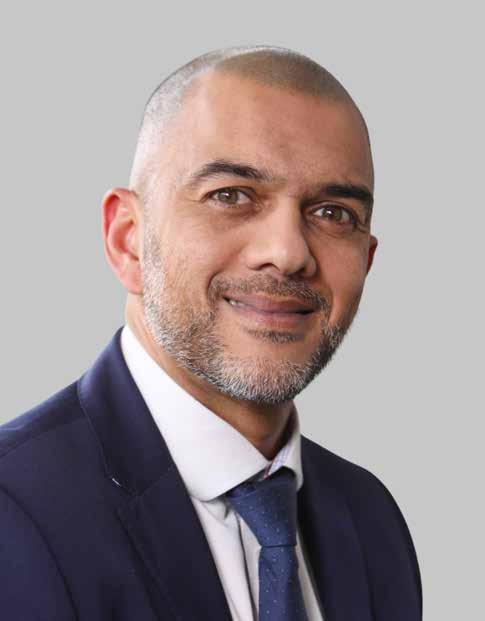
In your opinion, why is it considered difficult to fund infrastructure development in Africa?
Infrastructure development is generally driven by governments and sovereigns. Investment, progress and efficient deployment of infrastructure projects are intrinsically linked to a countries macro-economic circumstance as well as its Government’s decision making.
The main things impeding infrastructure development are:
1. Lack of long-term planning frameworks.
In South Africa, once we instituted the Independent Power Producer Programmes and created a framework around what the energy mix would look like, international investors were more confident as they could see the longer-term plan for projects to come to market.
2. Government and government institutions are insufficiently capacitated and there is a skills deficiency on the continent when it comes to packaging, developing and bringing projects to market. The private sector can support governments to build the capacity to help bring bankable projects to market.
3. T he G in ESG - Governance – very often the regulatory frameworks in Africa are not clear enough for investors to understand how procurement should look. This then delays projects coming to market as procurement and governance processes need to be cleared up first.
According to a recent study by the IMF – it was cited that “to attract private investors and transform the way Africa finances its development, improvements in the business environment seem critical.” What in your experience has proven to dominate ‘international investors’ minds about investing in African infrastructure projects?
In my opinion, two of the most important things investors want are long-term political stability in the country and a regulatory framework that allows ease of doing business. Most people know that red tape often gets in the way of progress on projects. We need to create an environment that is enabling for private sector participation on a large-scale.
According to research, there is need and available funding, together with a large pipeline of potential projects—but not enough money is being spent on infrastructure projects – do you agree with this finding and why?
Africa has no shortage of opportunity because the reality is that we have 600 million people who don’t have access to reliable electricity. We have the most youthful population on the planet and we are experiencing rapid urbanisation, but we don’t necessarily have the right infrastructure to maintain larger urban populations.
Long term visibility and stability allows for long term investment decisions being made. These decisions are made across the spectrum of investors and over time allows the inclusion of multiple sources of capital, the development of local markets and the ability for foreign
institutional capital to participate in the development of assets that would typically offer better yields in developing economies.
It is believed that Africa does not suffer from a shortage in infrastructure projects (both physical and social) but a shortage of bankable ones –what do you believe causes this misalignment?
It is very clear that there is no shortage of infrastructure projects across Africa and governments are prioritising infrastructure investment. The transport and energy sector take the bulk of the budgetary allocation from governments, but the question is “why are we not seeing projects hit the ground” and that primarily comes back to project preparation.
Bringing projects to market in a format that is bankable and attractive to investors in terms of ticking all regulatory boxes needs to be prioritised.
With the growth of ESG across Africa, how do you expect this will shape the infrastructure finance landscape in the next 5 years?
As much as ESG has become a catchphrase, it was always inherent in any infrastructure investment because of the scale of the projects and their impact on the environment and people. The fact that it is more regulated now is fantastic and will accelerate social development on the continent.
The energy transition is an overarching theme globally but in the context of 600 million people in Africa not having access to electricity, is energy security a bigger priority? This is a question we need to ask. As an African bank, we need to be thinking about this and balancing these issues with our purpose to drive Africa’s growth.
What does your current role entail, and tell us about your journey to this position?
I head up Global Energy and Infrastructure
Investment Banking at Standard Bank. My journey to this position was an unplanned one and I started my career in leverage finance and the BEE finance space. In 2008, just before the market crash, I moved to investment banking.
I’ve never left the sector as I’m a strong believer that we need to have purpose in what we do, and it’s rare to find a place where you feel you are making a real contribution to the lives of people and to the continent. I now head up a team that is really contributing to a purpose.

When you are not doing E&I what are you doing?
I love our continent and I fully identify as African. When I’m not working on energy and infrastructure transactions, I am overlanding in my 4x4 somewhere in Africa. I have just come back from a trip with my kids to Zimbabwe and it was heart-warming to tell my family that we were part of the Zimbabwe/South Africa border project, one of the busiest borders in the NorthSouth corridor of the continent. What used to take 7-hours took us 30-minutes!
What words of advice do you have to the next generation of bankers?
My advice to the next generation of bankers is that you need to think about your purpose first and that you have a contribution to make. Generational gaps are real and what was important to us when we started our careers may not be as important to the next generation of bankers. We are a very small part of the population on the continent that has been privileged enough to get the right education and opportunities and we are in a position to make a difference.
Before you think about making money, think about where your passion lies, and where you can give back to our continent.

What impact has COVID-19 had on the South African market and how have you responded as Standard Bank Global Markets in supporting your clients?
Covid reinforced how important it is to have the right mind-set, people and skills that are able to embrace complex situations. The COVID-19 pandemic was thrust upon us and created a completely new and uncertain environment and with it the ability to realise that “complexity is a privilege” and an incredible opportunity to cocreate solutions with our clients.
We’ve worked hard to develop and hire the right skills and also cultivate the mindset that allows us to really own and embrace complexity. Over many years our teams have built strong relationships with clients and with this ever present mindset of “complexity being a privilege” we’ve been able to deliver highly focused solutions.
Are there any other market themes in the last 1218 months that have had a material impact on client needs? How have you responded to these?
When we look back now the pre-COVID period was really a very benign time: a stable geopolitical environment, low inflation, plentiful liquidity, relatively low volatility and very manageable yield curves. Since the COVID-19 pandemic we've seen so much change. Every one of the points I mentioned above no longer exists or is in a state of flux.
In response, we’ve been incredibly deliberate about understanding how the world has changed, what these changes mean and then looked to use our unique skills to provide our clients with the relevant solutions needed.
What impact has the recent focus on ESG had from a global markets perspective, especially as we’ve seen Standard Bank GM advise on transactions with the likes of Scatec?
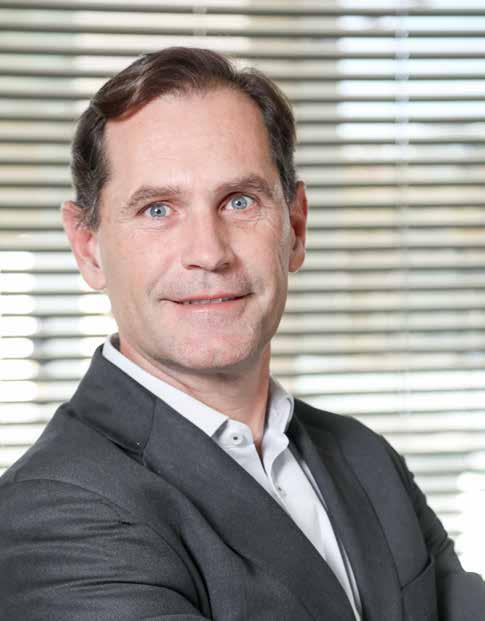
In the last few years there has been increased focus on the ESG impacts of companies from their investors, regulators and consumers. As a bank we are responding to this by ensuring that all our divisions are mindful of their impact and do the right business in the right way.
Funding renewable projects is a key element of our ESG strategy. However, these projects have long lead times and long tenors and are often not rand based which adds significant risk and complexity. As a leader in the renewables space we not only provide the finance but also hedging and risk mitigation strategies that ensure the financial viability of these crucial projects.
Earlier this year, we partnered with Scatec to successfully reach financial close on the first sizable battery energy storage and photovoltaic (PV) solar project in South Africa. The project is a great example of how, alongside our significant funding we delivered effective risk mitigation by hedging $10bn of exposure and creating certainty in the transaction.
How can carbon market vehicles, like carbon trading, be used as a mechanism to channel new investment into energy security in South Africa?
Given that the two dominant carbon credit standard-setting organisations (Verra and GoldStandard) changed their rules in 2020, no longer allowing registration of grid tied renewable energy projects in countries other
Head of the Client Souththan Least Developed Countries, there is limited scope for carbon credit revenues to fund meaningful expansions in South Africa’s renewable energy generation capacity.
Where carbon markets can play a role is as a conduit for finance that can be applied to alleviate energy insecurity and energy poverty. 90% of carbon credits are bought in the global north while 90% of potential natural climate solutions are in the global south and the carbon markets can provide a mechanism for this potential flow of capital.
Research indicates that using the available land and natural capital sub-Saharan Africa has the potential to sequester 1,200 million tCO2e per year relatively cost-effectively. If these emission reductions could be monetised into carbon credits, they would represent an African export market worth 10s of billions of USD annually.
This stream of carbon finance could offer a vital source of financing for developing countries that can be applied for mitigation and adaptation.
What are the biggest risks facing SA clients and what opportunities are clients and investors seeing in the country?
South Africa has immense opportunities and great risks. The impact of the potential graylisting and its effect on capital flows is one of the top risks facing South Africa. The country also has political uncertainty around the upcoming ANC electoral conference, and the current power and infrastructure issues.
Investors see that South Africa has an incredibly healthy banking and savings industry and a young upwardly mobile population. South Africans are energetic, innovative and entrepreneurs, however our country is in desperate need of infrastructure spend.
There are great opportunities in renewable energy and digitisation.
25 renewable energy projects have been selected for development in the fifth bid window of the country’s Renewable Energy Independent Power Producer Procurement Programme (REIPPPP) –aiming to secure more than 2,500MW of renewable energy primarily from onshore wind farms and solar photovoltaic plants.
We also project that South Africa’s technology, media, and telecommunication sectors are expected to see the most M&A activity in the foreseeable future, with investments in non-traditional sectors harnessed on digital infrastructure and ESG values.
There are great opportunities in renewable energy and digitisation.
What does your current role entail, and tell us about your journey to this position?
I am the Head of the Client South Africa Business for Global Markets. My job is to ensure that we leverage the full Standard Bank franchise to deliver an impactful set of solutions to our clients.
I started my career as a commodities trader at Glencore, and later worked on the interest trading desk at the Royal Bank of Scotland in London. Thereafter, I joined Investec Johannesburg as a currency trader. Finally, I joined Standard Bank in 2006 on the Sales & Structuring Desk. Prior to my current role, I was responsible for the Client Solutions team within Global Markets.

What words of advice do you have to the next generation of bankers?
There will come a time that you will need to be comfortable with the fact that you must make decisions without all the information you require -few leaders know absolutely everything about their business, but make sure you understand the important pieces, how these come together and most importantly, where to find the information you don’t know!

Africa (and South Africa) is often considered a lagger when it comes to many things, in your opinion, where are we as a continent in comparison to other markets, in particular emerging markets, when it comes to the uptake and implementation of renewable energy projects?
The development and implementation of Renewable Energy across the continent has been slow, although Africa presents a significant opportunity given its resources (wind, solar and hydro) combined with low electrification rates (except for South Africa).
Historically, renewables were criticised as being too expensive. However, we have seen a significant decline in cost due in large part to advancements in technology making renewables more efficient and affordable. Technological advances have made it possible to advance the transition away from non-renewable energy sources over time, with Africa being rich in untapped renewables. Most countries in Africa are currently implementing energy transition initiatives, through a combination of technologies (mainly gas and renewables) with a strong focus on renewable energy towards a diversified energy mix targeting net zero commitments.
When it comes to energy projects, can you please elaborate on what some of the challenges are when looking at who to partner with on these types of projects? (Has the due diligence process changed / evolved with the growth of ESG in investing?)
The main driver towards efficient and effective project development and implementation is the quality of bankable projects which includes:
• An enabling environment through a robust and holistic policy framework to support the investment case;
• T he commitment made by governments towards climate change to advance investor confidence and alignment with ESG and growth targets;
• Objective to drive the transition through a d iversified energy system; and
• Focusing on regional opportunities within the broader context of growth will also be important.
Some of the challenges include adequate risk allocation, the importance of multilateral partnerships and an efficient implementation framework.
Strong sponsors, with the relevant track record aligned with a long-term approach to risk and reward, towards sustainable commitments and ESG is important.
Standard Bank has recently announced a number of renewable energy deals, can you tell us more about how these deals help with ensuring energy security across the continent?
Since 2012, 86% of the bank’s new energy lending has been to renewable energy. Most notably is the Kenhardt projects in South Africa, 540MW of solar PV combined with 1,1GWh of Battery Energy Storage System (BESS) where Standard Bank was the sole Mandated Lead Arranger, hedge provider and account bank for the R18bn project. The project reached financial close in July 2022. Also worth noting is Standard Bank’s role in initiating, facilitating and advising Seriti Resources in its acquisition of wind-powered renewable energy
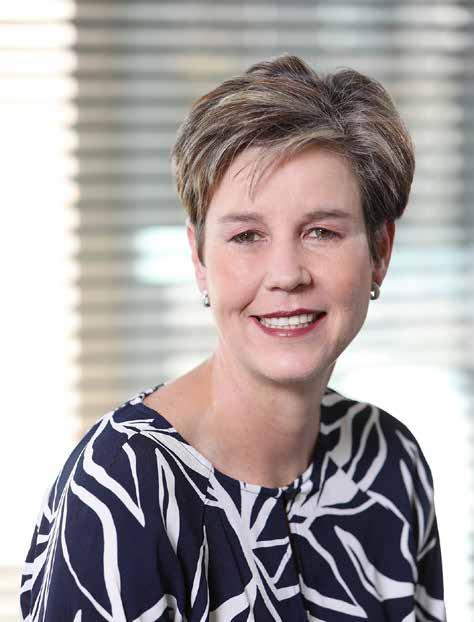
company, Windlab Africa through Seriti Green. Furthermore, in unlocking growth and reliable power supply towards ESG goals for clients, Standard Bank also closed a 200MW solar PV project supplying solar power to a mining client through wheeling, the first sizeable project of this nature in South Africa.
These projects do not only support sustainable green power supply, but also enhance energy security for the broader community.
What do you believe is the role of governments / regulators in enabling the speed of implementation of these renewable projects? Please give examples.
Both governments and regulators have an important role to play in creating and facilitating the development of robust investment frameworks by supporting an enabling environment to attract foreign direct investment. The Renewable Energy Independent Power Producer Procurement Programme (REIPPPP) in South Africa is a clear example of how various government departments collaborated with the regulator (NERSA) in developing a programmatic approach to procure renewables in line with government commitments and the broader Integrated Resource Plan. The programme was launched in 2011 and has successfully procured more than 9GW of which around 6GW is operational.
How can Public-Private Partnership (PPP) deals benefit skills development/transfer and job creation in Africa (and South Africa)?
A key objective in Africa remains development, support and social upliftment through project development and implementation to ensure sustainable long-term success. Through a publicprivate partnership transaction, partnerships can be facilitated to support skills transfer, upskilling and development with impact. It will remain important to agree the framework and key deliverables in terms of skills development and job creation up front, followed through with a diligent monitoring system to track progress and impact.
Which types of renewable and zero-carbon energy sources will see accelerated development due to the currently developing energy crisis both in SA and Globally?
The current energy crises, driven by significant power shortages, impacted by supply challenges, especially through limited investment in new generation, transmission and distribution infrastructure, support a framework to fasttrack investment. Renewables have been at the forefront of the development with solar PV and wind leading the way in new project development and investment. However, it has also been evident that decarbonisation initiatives through digital innovation, as well as decentralised power solutions, have developed and advanced. Policies, regulatory frameworks, and generally more openness to support the development through power sector reforms towards a merchant-type market has started to develop.
These initiatives will assist in accelerating the development and implementation of projects to address the current challenges and the current developing energy crisis.
What does your current role entail, and tell us about your journey to this position?
I am Head of Power, CIB at Standard Bank. In this role I lead the sector strategy and approach for the power sector, through strategic enhancement, opportunity development and identification in line with group objectives and commitments.
My journey to date includes various positions. I started my early career at another commercial bank before moving to a Development Finance Institution as an industry analyst, project financier and heading up various sector business units and establishing a specialised unit, focusing on financing Green Industries which included renewable energy.

What words of advice do you have to the next generation of bankers?
Commitment to making an impact, combined with hard work and passion will translate into success.

To what extent are bankers taking ESG factors into account when considering potential deals?
Most, if not all, banks are extremely focused on building out Sustainable Finance and ESG initiatives, and they are incorporating ESG considerations into their credit decisions. I think only a few banks have the sort of DNA that weaves impact into how they do business across the board.
How are they adapting due diligence and valuation processes to consider ESG?
Due diligence processes must have ESG considerations built into them. It’s what we believe is an essential component of current and future dealmaking. Integrating ESG thinking helps to formulate views on risk and risk factors throughout the diligence process and equally in formulating opportunities and upside. There are generally opportunities to be found where others see risk. We believe that clients who factor this kind of thinking into their deals are poised for sustainable, long-term returns, regardless of the sector in which they operate.
In which markets and sectors are these debates most advanced?
The sectors best positioned are those you would expect – Renewables, Power and Infrastructure, Healthcare, and Financial Services. We are also seeing a huge focus on the Just Transition across all sectors. We need to remember that ESG
has three legs to it, people tend to focus on Environmental considerations, however taking Social and Governance factors into consideration is also good business practice.
How do you believe the shift away from fossil fuels will shape M&A activity over the coming years?
We especially like the emergence of integrated energy as a theme, as evidenced by our landmark deal alongside Seriti in its acquisition of Windlab’s South African and East African businesses to create Seriti Green. Standard Bank was a co-investor in the equity, as well as a funder and partner to Seriti and Seriti Green. This deal delivers on our very strong commitment to the Just Energy Transition.
ESG and responsible investment considerations are profoundly reshaping business models. We have witnessed a rise in ESG dealmaking, with Standard Bank closing some key deals this year, do you predict this trajectory to continue over the next 5 years?
This trend is now well established and strengthening, and we believe there are huge opportunities in deal making over the next 5 years. Specifically, we see the emergence of several integrated energy players providing scope for multiple deal angles, from secondary asset trades to structuring and creating capital and funding vehicles to deliver on those aspirations. Permanent vehicles and fund
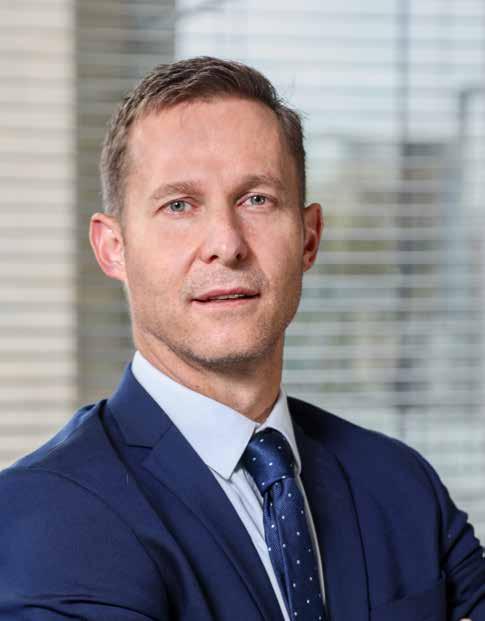
structures are becoming prevalent as solutions to delivering substantial pools of capital and liquidity into both REIPP and C&I projects. Changes in investment strategies away from single assets into platforms, secondary trades by sponsors out of and into assets portfolios, and foreign investment into local and African power are all themes we are seeing with our clients.
Given the continents massive funding needs, what role will sustainable finance play in bolstering capital for high-impact projects and how much appetite is there for green financing in Africa?
ESG, Sustainable Finance and Green Investments have become the biggest buzz words in the last few years. What used to be a niche topic has now taken centre stage –so this begs the question “what’s next”? We see the buzzwords as a distraction –profit with purpose is not a new concept, but as these topics become part of mainstream dealmaking we see renewables corporate finance and M&A advisory specifically becoming a critical focus area for investment banks, and one which has relevance in the South African and African context.
The convergence between technology and renewable energy specifically has the potential to become its own theme, alongside fintech.
What does your current role entail, and tell us about your journey to this position?

I am an Executive in the Standard Bank Advisory team, with a mandate to build out and grow the Advisory team’s Renewables Advisory capability.
My career in Investment Banking began at Standard Bank, and I have returned to the Group, because of the bank’s values and culture, which have always been aligned with positive social outcomes. What is the biggest / most complex transaction you have worked on so far in your career?
I have been fortunate to work on cross border deals including jurisdictions such as Turkey, Argentina, Russia and across Africa. I think buying and then restructuring and exiting a Turkish investment bank with operations in three jurisdictions probably rates quite high on the complexity list. However, the deals that tweak the most interest for me often have involved some principal equity investment angle as well, such as in the recent Seriti deal. Being able to deliver a full advisory, equity and debt solution in a deal construct makes things really interesting and is what sets us apart.
ESG, Sustainable Finance and Green Investments have become the biggest buzz words in the last few years.
What used to be a niche topic has now taken centre stage –so this begs the question “what’s next”?

What are the current challenges facing the power/energy and the infrastructure space that you want to talk about?
I would have to say load shedding, as it is strangling the South African economy. South Africa has a large existing coal fleet that is mostly older than 40 years and is beyond the useful life of these assets. In effect, this impacts the availability and consistency of power from these plants. This has led to the decline in the Eskom fleet Energy Availability Factor. Large portions of the existing coal fleet need to be decommissioned (18,000MW in the next 10 years) and Eskom needs sufficient capacity to take some of the plants offline to do necessary maintenance work.
Some challenges bring in opportunities. What do you see as opportunities in these sectors, particularly in the power/energy sector?
The challenges faced by Eskom have allowed for the diversification of South Africa’s power sector with private parties having an opportunity to play an important role in the country’s generation mix.It has also allowed South Africa to position itself as an excellent destination for the mass deployment of renewables with majors keen to participate in the sector, driving down pricing.
With renewables amounting to just over 10% of South Africa’s total energy supply, excellent opportunities exist for more renewables to be added to the grid, ensuring a diversification away from coal. However, given the need to add significant additional capacity to the grid, South
Africa should also look to other energy sources such as gas, which is widely seen as a suitable transition fuel.
What do you believe a just energy transition should look like in South Africa?
In my opinion, a just energy transition needs to look at renewables and consider gas as an option too. A mixed generation supply that includes gas would still reduce carbon emissions and will ensure the security of power supply that is key to South Africa’s economic growth.
Some other factors that we should consider include:
• Renewables should be maximised given that they are quick to the grid and are “green”.
• South Africa should look at increasing imports, particularly hydro power, through various projects being considered by our neighbouring countries.
• Conversion of Eskom and IPP fuel powered plants into gas – it’s a lower emitter and cheaper.
• Some of the 18,000MW of coal fired power plants should be decommissioned and replaced with gas power projects.
• To further increase renewables in the future, we need to have more storage options so that excess power is not wasted. Battery storage is a good option, but it can include the likes of pumped storage – which is more of a challenge given South Africa’s hydrology.
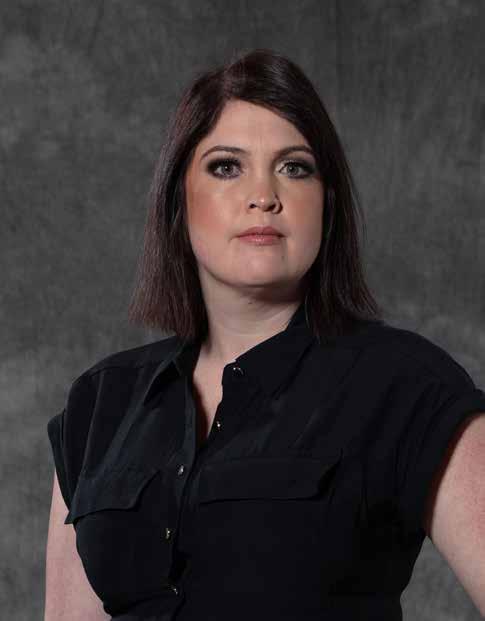
Which energy mix would be most appropriate for Africa’s energy transition?
There is large, untapped potential for hydro power in Africa. The problem faced is that the cost of building these plants requires larger sized projects which outstrip current demand, requiring other utilities and customers to offtake the power. We have also seen the impact of droughts, meaning some level of peaking and backup power is needed.
Renewables should continue to play a significant role on the continent. However, without storage options, countries will need to overcommit to renewables resulting in wastage of power or they will have intermittent power which places a strain on economies and their ability to grow.
I strongly believe that renewables have a significant role to play in the African energy mix, but not at the cost of energy security.
Looking at Africa as a whole, what would you say are the 5 key trends we need to look out for in the renewable energy space?
I think the five key trends when it comes to the renewable energy space include:
• Private market use of renewables – behind the metre as a means of energy security or fuel saving, as well as wheeled as a means of green electricity or as a cost saver.
• Consolidation of market players – M&A activity in the renewable sector, as well as fewer players bidding.
• Smaller projects struggle to attract appetite from traditional players and are more difficult to finance, but this may lead to the emergence of niche players who are able to generate portfolios.
• Introduction of storage technologies to better manage the generation profile of renewables.
• Hydro power to potentially play a bigger role in the region with multilateral off-takers.
What does your current role entail, and tell us about your journey to this position?
I am an Executive in the Energy and Infrastructure Team in Investment Banking at Standard Bank. My focus in South Africa is on the Independent Power Producer Programmes (currently Renewable Independent Power Producer Programme and Risk Mitigation Independent Power Producer Programme). I am also involved in project financing in the sector across the continent.
I have led the negotiations on over 1700MW of renewables and 300MW of thermal power projects.
What is the biggest / most complex transaction you have worked on so far in your career?

The biggest transaction I have worked on so far in my career actually closed this year – it was the Scatec 540MW solar and 1.1GWh battery storage project in the Northern Cape of South Africa. This is one of the largest battery storage projects globally and a first for South Africa in terms of baseload renewables.
What words of advice do you have to the next generation of bankers?
The thing I love about my role is that you can make a difference and what you finance is tangible – it is a power project, a road, a port. It contributes to the well-being and lives of people. Some media tend to portray bankers in a negative light, but you can be ethical, make money and you can contribute to society!
Renewables should continue to play a significant role on the continent.